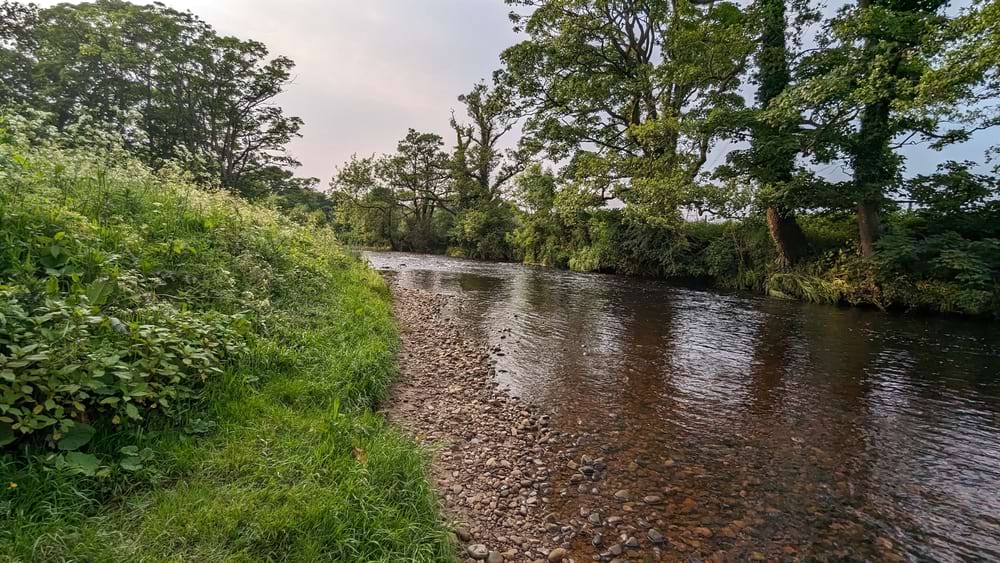There are several factors to ensuring a successful house sale.
One of these is how well it’s marketed.
So, how does the property marketing process work?
Read on for our overview and top tips on this.
Why market a property?
There are three main stages to selling a home:
- Preparation
- Marketing
- Negotiation.
Every month, about 100,000 residential properties are sold in the UK.
Potential buyers will look at an average of six properties before they decide to make an offer.
So, if you want to sell your property, it must be marketed.
And if you want to get the best possible price and time frame, it must be marketed well.
Otherwise, you’ll limit the potential buyers interested in it and may be forced to accept a lower offer.
Most of the marketing is done by an estate agent. However, you can help them with by preparing well and cooperating with them for the marketing.
Marketing your property yourself
You can market your own property. This will likely involve the following methods:
- Listing your property on Rightmove and Zoopla
- Putting up a ‘For Sale’ sign
- Hosting an open house day
- Advertising in local magazines and websites
- Social media posts – e.g. local Facebook groups
You will need to consider some of the smaller tasks involved with these strategies.
For example, you’ll have to take photos of your house for the Zoopla listing. And you’ll need to buy a ‘For Sale’ sign to put out the front of your property.
How to market your property
No matter what type of property you have, there are set steps to follow.
There are ways to sell property that don’t require marketing it (see below). But the below steps refer to selling on the open market.
1. Photographs
Good photographs are the first and most crucial part of marketing a home.
Without them, many properties won’t even be considered by most buyers.
You should resist offers for estate agents themselves to take photos. Unless they have an in-house professional or preferred partner, the photos won’t do it justice.
And if you hire a professional photographer yourself, be sure to choose one with experience and expertise on photographing homes.
They will know the best angles, lenses, and lighting to use. And they will understand the best way to present your property, as well as the best range of interior and exterior photos to use.
One quick win, for example, for improving kerb appeal is to move your car(/s) before photos. For luxury homes, there is even a trend for putting expensive sportscars on drives to add to the overall sense of extravagance.
A good property photographer will have list other tricks, too, such as:
- Hiding bins from external shots
- Setting hints of scenes (e.g., open patio doors giving way to a table made up for dining at)
- Positioning furniture to match the angle of photographs
- Editing the colours and tones of photographs in editing software.
And more.
Aerial views
Some estate agents even offer drone photography of properties.
Research by one American luxury real estate company found that properties with aerial photographs sold on average 68% faster than those without it!
2. Videos
Videos are becoming increasingly popular for marketing properties in the UK.
They give potential viewers a sense of homes photographs and written listings (see below) can’t always capture.
As with a photographer, good professional videographer will know where and how to film. And even more than the former, they will know how to edit the footage for maximum effect.
Be wary of videographers who only offer a single, one-size-fits all video. Different platforms suit different formats, from screen size to footage length and cuts.
Use a presenter or not?
You should also consider whether you think the video needs a presenter (this is often your estate agent). In some cases, this adds a personable touch that keeps users engaged.
The best way to decide is by looking at videos for similarly priced properties. Or to commission two versions of the video, one with a presenter and one without, and deciding based on which you think is best.
Introductory and sales-qualified videos
It can be useful to create two main videos (or tiers of videos).
The first can be a shorter, ‘teaser’ video that gives the basic overview to all viewers.
The second can be a longer form, more detailed videos. These can only be sent to buyers that have got in touch for more information. They will help sustain or develop interest at a later stage of the marketing funnel.
3. Listings
Once you have visual media ready, copywriting is the next stage to complete a listing.
As with other steps, using an experienced professional is key. Many listings have limited space, and most potential buyers’ have limited attention spans.
So, getting the right words in the right order is crucial.
To begin with, your listing should avoid redundant words. For example, ‘available now’, ‘located in the heart of…’, ‘stunning views’, etc.
They should also avoid using the same set-phrases similar listings use.
And framing information in a positive – but honest – light is useful, too. For example, if a house is in poor condition, it’s better to describe it as ‘an opportunity to invest in’.
Channels
As with photos and videos, written listings can vary in length and style across platforms.
For example, in listings in emails, it’s essential to get headings correct to increase the likelihood of emails being opened in the first place.
And on social media platforms, you might have more or less room to write than regular listings.
Discreet listings
Discreet listings are typically listings made by estate agents to their contacts before properties are fully listed in public. They might be carried out via phone calls, emails, or on web portals with limited specific property details.
They are a good way of marketing properties without leaving a publicly available trace of their having been up for sale. (Houses that have been marketed for longer periods generally tend to have to lower their prices.)
When they are successful, they can save homeowners the effort, costs, and time of fully marketing their property.
4. Timing
Generally speaking, the property market is seasonal. It’s particularly active during spring and January, for example.
However, this also means that these times are more competitive for sellers. And these times may vary according to the national or local property market.
4. Staging
Staging a property refers to preparing it for viewings. This can arguably be considered a part of both the marketing and sales part of selling.
Its most basic (but essential) aspect is cleaning and tidying the property. Aside from this, other elements can come into play, such as:
- Lighting
- Depersonalisation
- Scent.
Professional staging services are becoming more popular in the UK. (In the US, they are already quite mainstream.) In many cases, homeowners can more than recoup the cost paying for this by achieving a higher selling price.
Avoid marketing altogether – use We Buy Any Home
We Buy Any Home is a quick sale cash house buying company. We buy all kinds of property in all kinds of conditions.
Marketing takes time and our service is centred around helping sellers sell their house fast – in as little as 7 days.
So, by selling to us, homeowners can avoid waiting for listings, viewings, and negotiations.



















